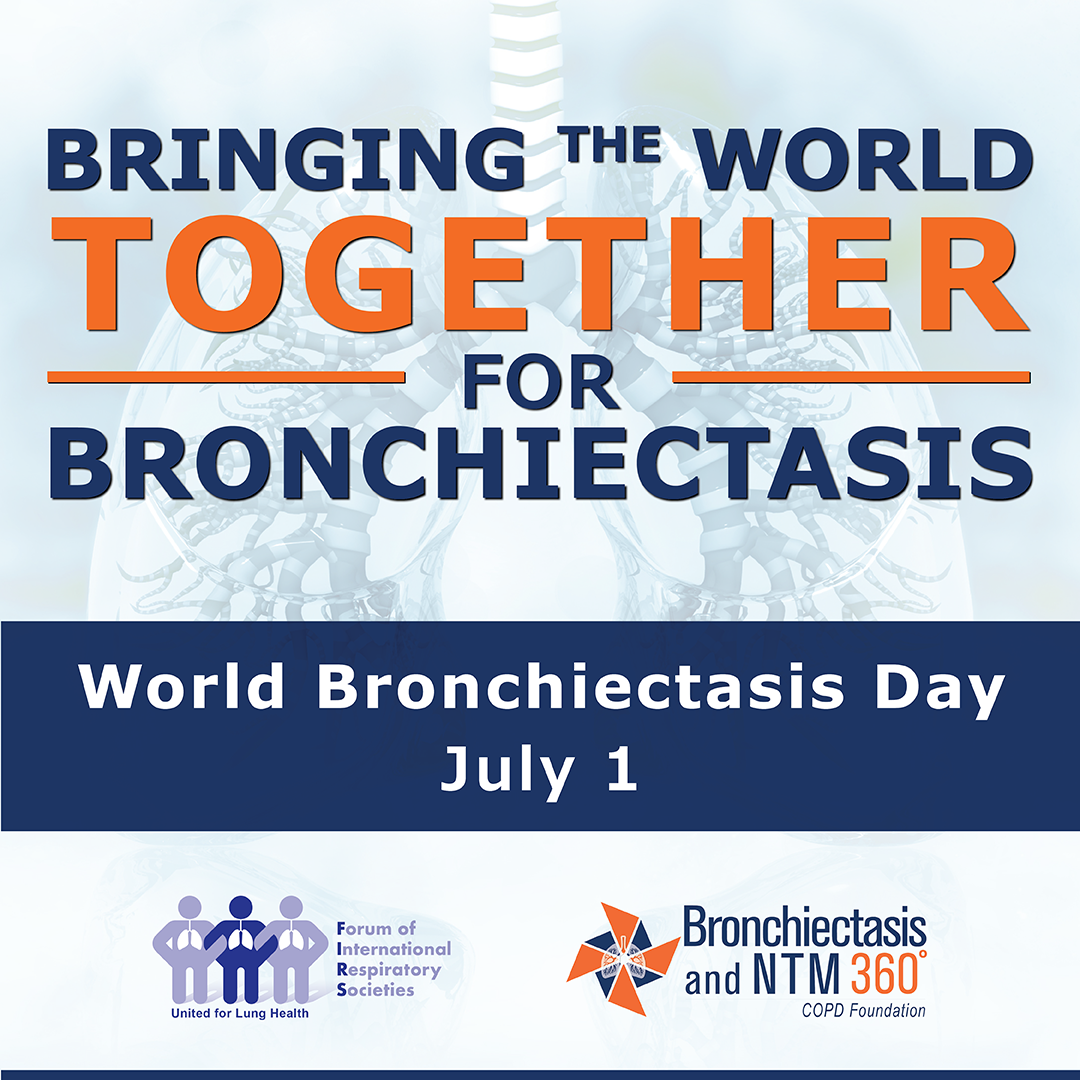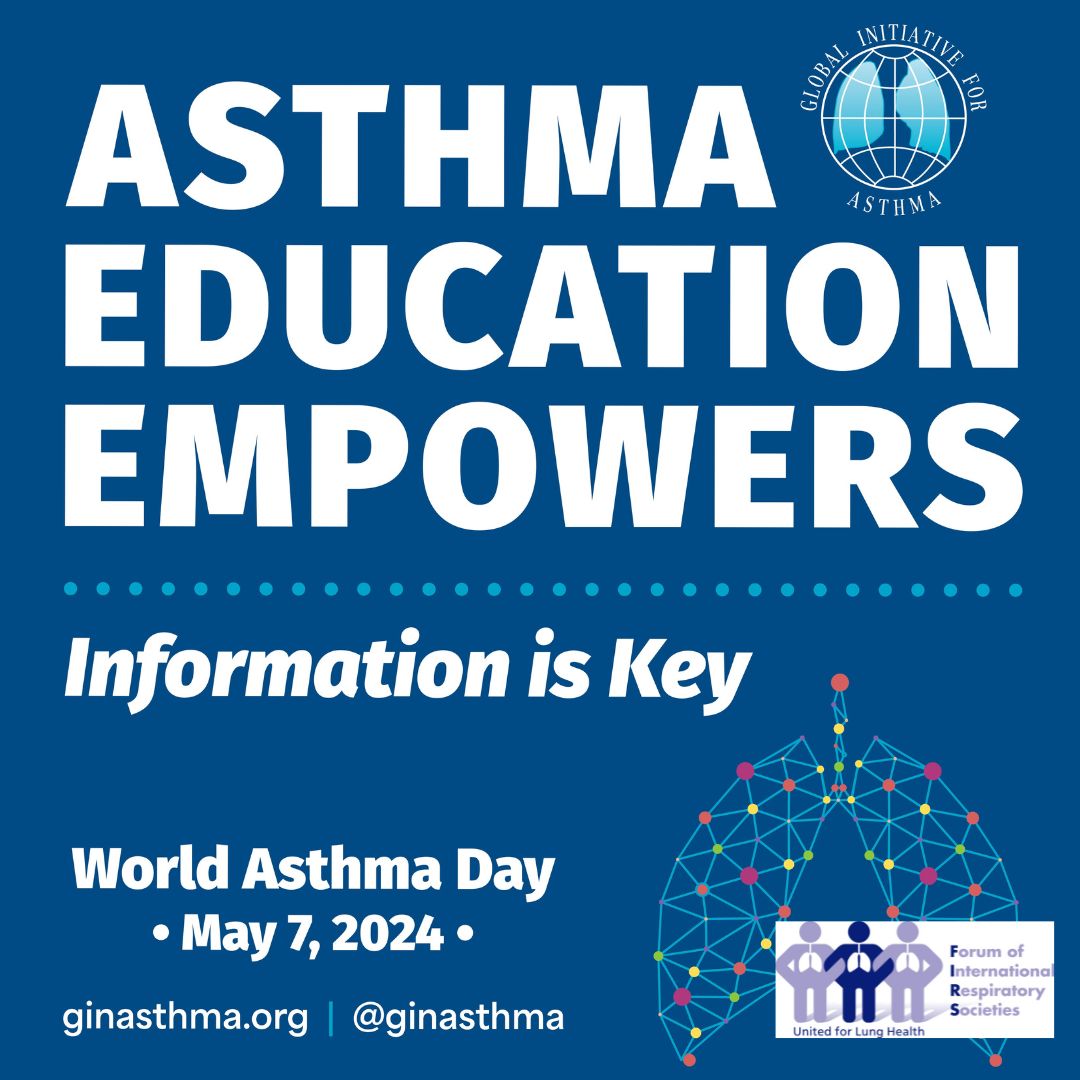Cape Town, Glenview, Lausanne, Montevideo, New York, Paris, Tokyo, Fontana, May 2, 2017 – In support of World Asthma Day, 2 May, the Forum of International Respiratory Societies (FIRS) urges more availability to effective medications and health care for persons with asthma.
It is estimated that between 300 and 400 million people worldwide suffer from asthma and about 250,000 people die each year–that is 1300 deaths every day. Most of them occur in low- and middle income countries. Asthma affects 14% of all children worldwide and its prevalence is rising. It is a major cause of school absenteeism and preventable hospital admissions.
Asthma has been designated as one of the major noncommunicable diseases globally. Asthma causes recurrent attacks of breathlessness, cough, or wheezing, which may vary in severity and frequency from person to person. Asthma symptoms frequently cause nighttime wakening, daytime fatigue, reduced activity levels, and school and work absenteeism.
Asthma can be controlled with good medical care and appropriate medication. However, in many countries, particularly in low- and middle income countries, health systems may not have the capacity to implement existing guidelines and patients do not have access to affordable good quality asthma inhalers. The lack of inhaled corticosteroid preventer therapy can lead to unnecessary attacks of acute or severe asthma that may require hospitalization. Poorly controlled asthma places a large economic burden on patients, their families, and the health system, which can be avoided if appropriate asthma management strategies and inhaled medicines are available.
FIRS considers asthma one of the five most urgent respiratory conditions globally. Asthma together with COPD, acute respiratory infections, TB, and lung cancer account for a great societal burden and there is an urgent need for increased attention. Political commitment is key to reduce the burden of asthma globally. “Access to quality asthma care, including the availability of effective asthma inhaler medicines and education on how to deal with asthma are main tools to reduce the ill effects of asthma,” said Professor Søren Pedersen, MD, chair of Global Initiative for Asthma (GINA), a member organization of FIRS.
Asthma and other noncommunicable diseases are causing a huge burden in low- and middle income countries, and this burden is very likely to grow dramatically if strong measures to control these chronic diseases are not implemented with determination and without delay. FIRS advocates that strategies to reduce the burden of asthma and other noncommunicable diseases be considered a high priority in the framework of the UN Sustainable Development Goals to be finalized this year.
About FIRS
The Forum of International Respiratory Societies (FIRS) is an organization comprised of the world’s leading international respiratory societies working together to improve lung health globally: American Thoracic Society (ATS), American College of Chest Physicians (CHEST), Asociación Latino Americana De Tórax (ALAT), Asian Pacific Society of Respirology (APSR), European Respiratory Society (ERS), International Union Against Tuberculosis and Lung Diseases (The Union), the Pan African Thoracic Society (PATS), the Global Initiative for Chronic Obstructive Lung (GOLD), and the Global Initiative for Asthma (GINA). The goal of FIRS is to unify and enhance efforts to improve lung health through the combined work of its more than 70,000 members globally.
About World Asthma Day
World Asthma Day was initiated by the Global Initiative for Asthma, GINA, to improve asthma awareness and care around the world (www.ginasthma.org). GINA has been on the forefront to make sure that asthma is being given the right attention globally. The theme for 2017 is "Asthma: Better Air, Better Breathing."
Contact: Betty Sax, Phone: + 41 21 213 01 11, Email: This email address is being protected from spambots. You need JavaScript enabled to view it.




